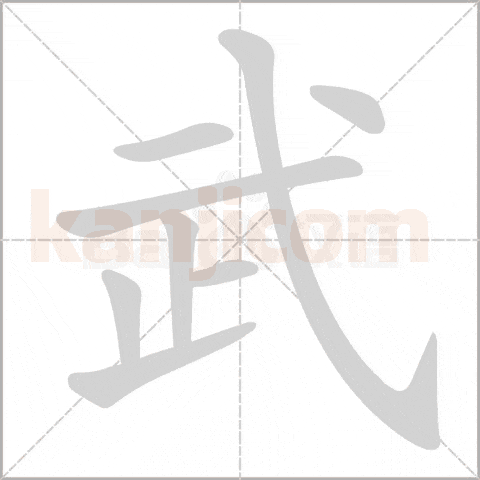

The kanji, or Japanese characters, are more than just symbols of language; they are windows into the soul of Japanese culture, history, and philosophy. Among the most revered and fascinating aspects of Japanese tradition is the concept of the samurai, the legendary warriors who embodied discipline, honor, and unwavering loyalty. The kanji for "samurai" and related terms are deeply rooted in the values and ideals that defined this warrior class, offering insight into their ethos and the cultural significance of their legacy. This article delves into the kanji associated with samurai, their meanings, and the profound influence they continue to exert in modern times.
Understanding the Kanji for Samurai
The term "samurai" itself does not correspond to a single kanji but is often expressed in combination with other characters. The most common way to write "samurai" in kanji is 武士 (bushi), where 武 (bu) means "martial" or "warrior," and 士 (shi) means "gentleman" or "nobleman." Together, 武士 represents the ideal of a warrior who is both skilled in combat and possesses the virtues of a noble and cultivated individual.
武 (Bu): The Martial Spirit
The kanji 武 is composed of two elements: 戈 (ge), a weapon resembling a halberd, and 止 (shi), meaning "to stop" or "to stand still." This combination symbolizes the idea that the purpose of martial arts is not to destroy but to maintain peace and order. In the context of samurai, 武 embodies the balance between strength and restraint, reflecting the samurai's duty to protect and serve while adhering to a strict moral code.士 (Shi): The Noble Warrior
The kanji 士 originally referred to a member of the nobility or a scholar-official in ancient China. In Japan, it evolved to represent the educated and refined warrior class. The character 士 is composed of two horizontal lines and a vertical line, symbolizing stability, balance, and the harmonious integration of different elements. For samurai, 士 emphasized their dual role as warriors and intellectuals, embodying both physical prowess and intellectual cultivation.
Together, 武士 (bushi) captures the essence of the samurai ideal: a warrior who is both formidable in battle and noble in spirit.
Kanji Reflecting Samurai Values
The samurai were guided by a strict code of conduct known as bushidō (武士道), which emphasized honor, loyalty, integrity, and self-discipline. Many kanji associated with samurai reflect these values and the philosophical underpinnings of their way of life.
信 (Shin): Loyalty and Trustworthiness
The kanji 信 means "loyalty" or "trustworthiness," a cornerstone of samurai ethics. It is composed of 人 (jin), representing a person, and 言 (kan), meaning "word" or "speech." This combination signifies the importance of keeping one's word and maintaining unwavering loyalty to one's lord, family, or cause.義 (Gi): Righteousness and Honor
The kanji 義 represents "righteousness" or "honor," embodying the samurai's commitment to doing what is morally right, even in the face of adversity. It combines 羊 (yō), a symbol of harmony and balance, with 我 (ga), meaning "self." This reflects the idea that true honor comes from aligning one's actions with a higher moral principle.忍 (Nin): Perseverance and Self-Control
The kanji 忍, often associated with the concept of "ninjutsu," embodies perseverance, patience, and self-control. It is composed of two elements: 心 (shin), meaning "heart" or "mind," and 刀 (tō), a sword. This symbolizes the samurai's ability to endure hardship and maintain emotional discipline, even in the most challenging situations.魂 (Kon): Spirit and Vitality
The kanji 魂 represents the "soul" or "spirit," reflecting the samurai's belief in the importance of inner strength and resilience. It combines 鬼 (oni), a mythical spirit, with 丶 (a small stroke), symbolizing the mysterious and powerful essence of the human spirit.
The Legacy of Samurai in Modern Culture
While the samurai class no longer exists in its traditional form, the kanji associated with their ideals continue to resonate in modern Japanese culture and beyond. These characters are often used in names, tattoos, and motivational phrases to embody the samurai spirit of courage, discipline, and integrity.
Names and Personal Identity
Many Japanese names incorporate kanji like 武 (bu) or 士 (shi) to evoke the warrior spirit. For example, the name 武田 (Takeda) combines 武 (martial) with 田 (rice field), symbolizing strength and productivity. Similarly, the name 新田 (Nitta) combines 新 (new) with 田, reflecting a fresh and ambitious spirit.Branding and Inspiration
The kanji associated with samurai are frequently used in branding, particularly in products related to martial arts, fitness, and personal development. For instance, the character 忍 (nin) is often used to convey the idea of perseverance and self-discipline, while 武 (bu) symbolizes strength and martial prowess.Literature and Media
Samurai-themed literature, films, and video games often incorporate kanji like 武士 (bushi) or 忍 (nin) to evoke the warrior ethos. These characters serve as visual and symbolic reminders of the samurai's enduring legacy and the timeless values they represent.Conclusion
The kanji for samurai, such as 武士 (bushi), 忍 (nin), and 信 (shin), are more than just symbols; they are gateways to the heart of Japanese culture and philosophy. These characters reflect the samurai's unwavering commitment to honor, loyalty, and self-improvement, offering timeless lessons for modern life. Whether through personal names, cultural symbols, or motivational phrases, the kanji associated with samurai continue to inspire people around the world to embrace courage, discipline, and integrity. In their simplicity, these characters encapsulate the essence of the warrior spirit, reminding us that the ideals of the samurai are as relevant today as they were centuries ago.